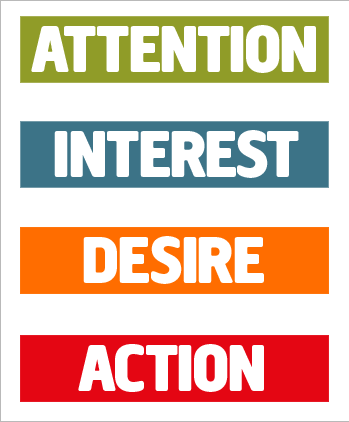More Marketing Strategies:
 It has been said that people fall into “waking trances” wherein they are completely preoccupied with something, to the exclusion of virtually everything else. A simple example of this is a football fan watching a game on TV. The person is awake but they can’t even hear the wife calling him for dinner. They are completely focused on the game.
It has been said that people fall into “waking trances” wherein they are completely preoccupied with something, to the exclusion of virtually everything else. A simple example of this is a football fan watching a game on TV. The person is awake but they can’t even hear the wife calling him for dinner. They are completely focused on the game.
Well, the fact is, most people walk around preoccupied with certain things. Maybe it’s not the football game, but it’s usually their problems and desires. To market your products or services successfully, you have to connect with people where they already are. You have to open with the things they are already preoccupied with–their current “trance”–before you can get them preoccupied with your product or service.
Remember that how you frame, position, or explain your product or service will determine how people perceive it. How they perceive it will determine what they do.
 It doesn’t matter how great your products are. If you don’t present them correctly, if they aren’t perceived in the right way, people won’t buy them. For more ideas, read our other articles on marketing.
It doesn’t matter how great your products are. If you don’t present them correctly, if they aren’t perceived in the right way, people won’t buy them. For more ideas, read our other articles on marketing.
The famous Robert Collier once said that you have to start your advertising where your customers already are. What’s an easy way to do that?
Aristotle’s Four-Point System For Persuasion
Can we learn something about marketing from the great Aristotle? You bet! He created a four-point system for persuasion that is still being used today, over 2,000 years later.
His logical four-step “arrangement” looks like this:
1. Exordium. A shocking statement or story to get attention.
2. Narratio. You pose the problem the read/listener is having.
3. Confirmatio. You offer a solution to the problem.
4. Peroratio. You state the benefits of the action.
 This should look familiar to you. It’s very similar to classic advertising formula known as AIDA: attention, interest, desire, action.
This should look familiar to you. It’s very similar to classic advertising formula known as AIDA: attention, interest, desire, action.
Because of both of those formulas, most sales-oriented writing follows the easy path of answering these questions:
1. Are you getting attention with your opening?
2. Are you stating a problem the reader cares about?
3. Are you offering a solution that really works?
4. Are you asking the reader to take action?
There is another set of four elements of persuasion that can be combined with any marketing effort.
Roy Garn’s “Fatal Four”
Roy Garn wrote the book The Magic Power of Emotional Appeal in 1960 and it went through 10 printings by 1964. It was released in hardcover and paperback, but today it is largely forgotten.
In order to better understand effective marketing, Garn posed the question, “What are people preoccupied with?”
In his research, he found four main preoccupations…the “fatal four” as he called them, and he said they are:
1. Self-preservation
2. Romance
3. Money
4. Recognition
According to Garn, all buying decisions and motivators fall into one or more of those four categories. Let’s take a closer look at these.
 Self-Preservation
Self-Preservation
Self-preservation is health, security, protection of yourself/belongings/family and anything else dealing with your ability to keep what’s yours and live forever. This is the hot button that sells everything from insurance to security systems to fitness products and more. Garn wrote, “It includes fears, hopes, and wishes within attitudes about personal satisfactions, comforts, danger, pain, sickness, health, death or injury.”
He also added that self-preservation “includes love of parent for child, child for parent, master for pet, and related protective feelings. Desires for personal freedom and fears of imprisonment are in this appeal; so are most aspects of religious belief and communication.”
 Romance
Romance
Romance, of course, involves sex, though Garn felt that sex itself falls under self-preservation while sexual desire and attention fall under romance. But romance didn’t end there; Garn said that this emotional appeal also involved “the Future Promise” and “the Desire for New Experiences.”
“Whether in love, health, money, appearance, satisfaction, or recognition, we all strive towards some form of perfection. Those whose words and actions help us move mentally in the direction of our personal preferences offer us more of the happiness we seek.”
Garn explained that when you paint a picture of a future people want to experience, you are tapping into romance. The same is true when you offer a new experience that people feel a desire to have. You are, in essence, romancing them.
 Money
Money
Money as a motivator shouldn’t surprise you. It’s not the only and isn’t necessarily the most powerful, but it’s one of the top four. Anything having to do with making or saving money gets attention. If tied in with romance, self-preservation, or recognition, it becomes all the more powerful and even irresistible. This product does BOTH- not only does it save money for your customer, but if you tie it to self preservation of self/family, it becomes an easy sales close for you.
Recognition
Very often people will do things just to be noticed. This is the power of recognition. Garn wrote, “In human communication, the Emotional Appeal of Recognition can instantly break Preoccupation, enter a mind or change a mind. It relates to pride, opinion, appreciation, identification with clothing, appearance, behavior, events, people, products or organizations. It embraces emotional tie-ins to loneliness, popularity and the way you appear ‘in the eyes of others.’ Looking ‘good’ to others is important to us.”
 Putting It All Together
Putting It All Together
Remember Aristotle’s and Roy Garn’s four-point systems when you’re putting together your next marketing piece.
Open with a statement that grabs attention and appeals to one (or more) of the emotional “hot buttons.” Pose a problem that elaborates on it. Present your solution and romance your prospects a little by stating the benefits in such a way that they appeal to those same buttons, and watch the responses come flooding in!
To your Success!
Glenn Hough
CEO, Electric Saver 1200
